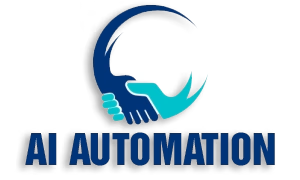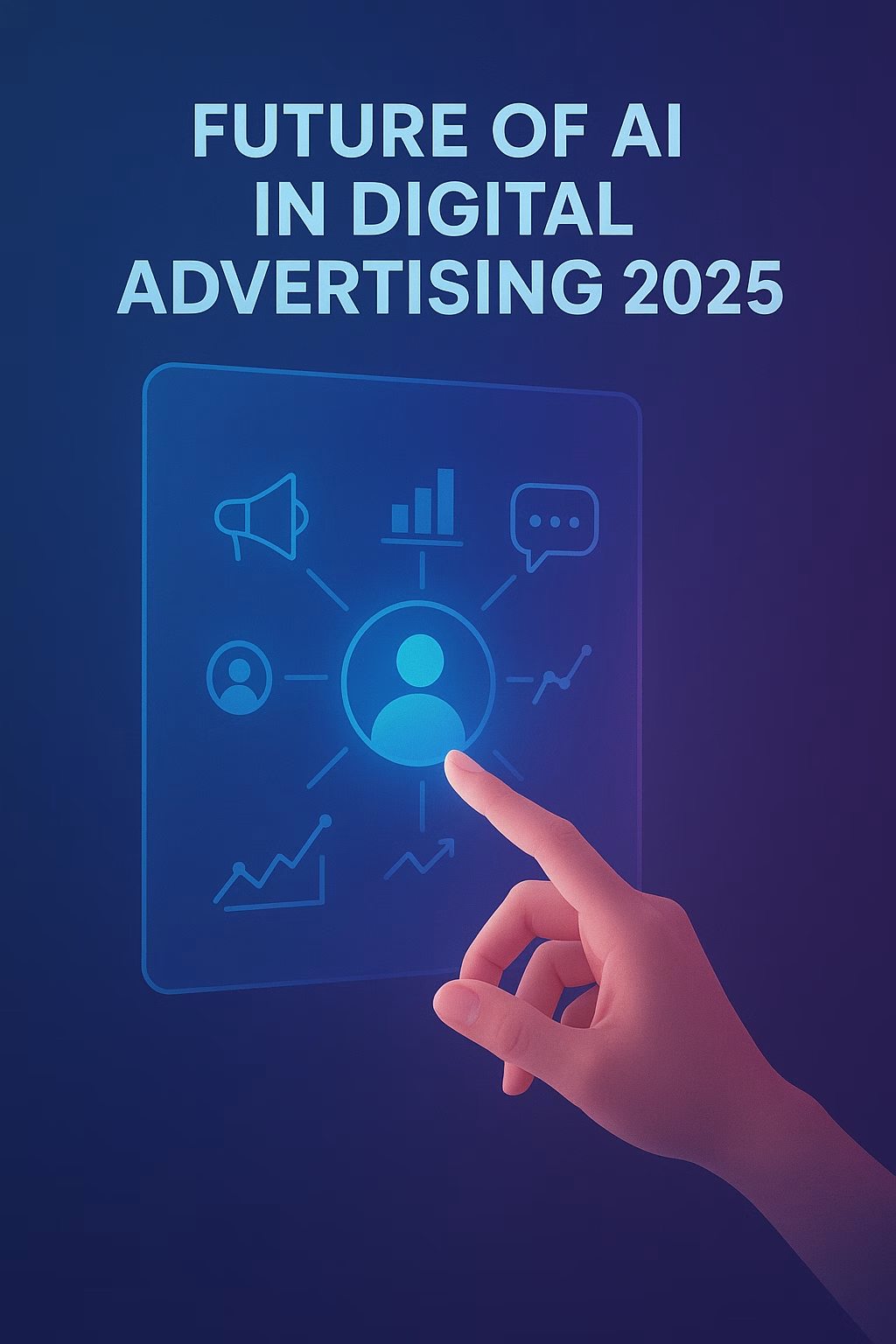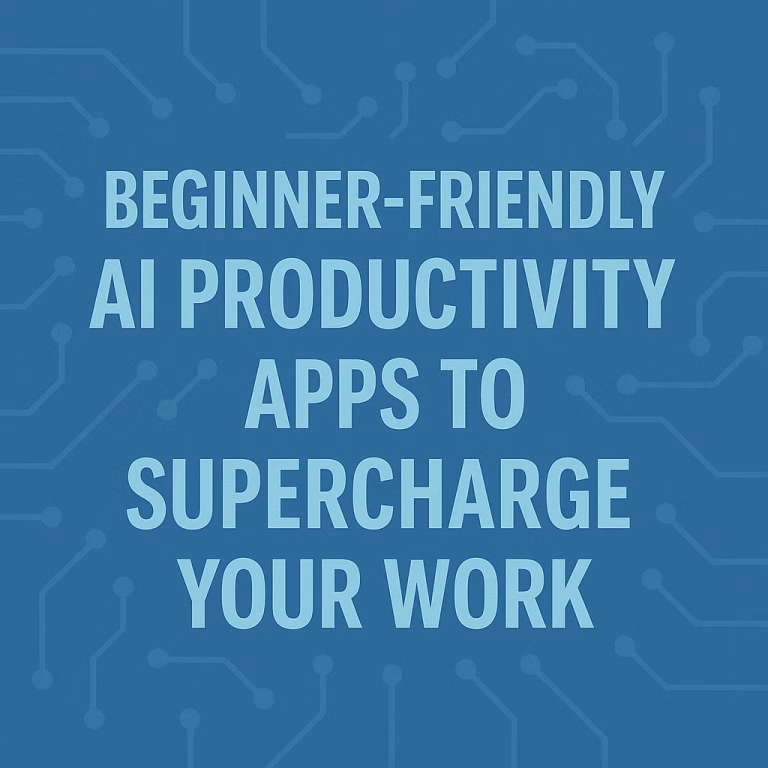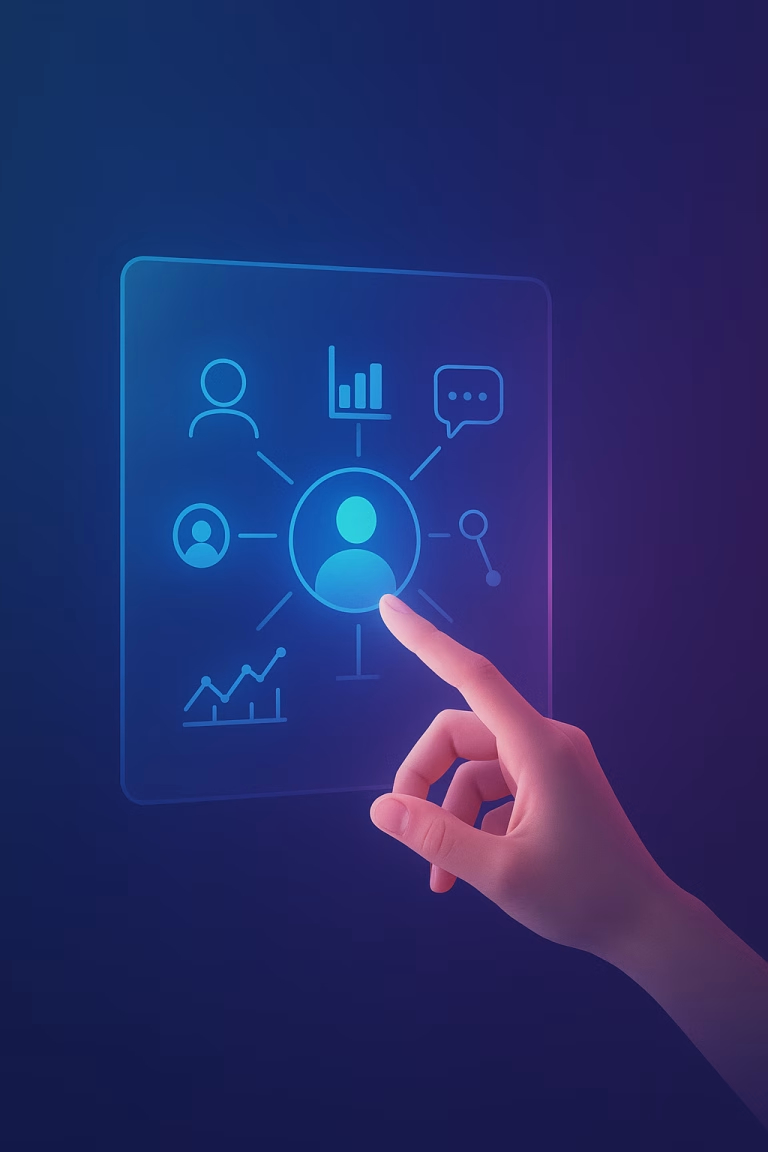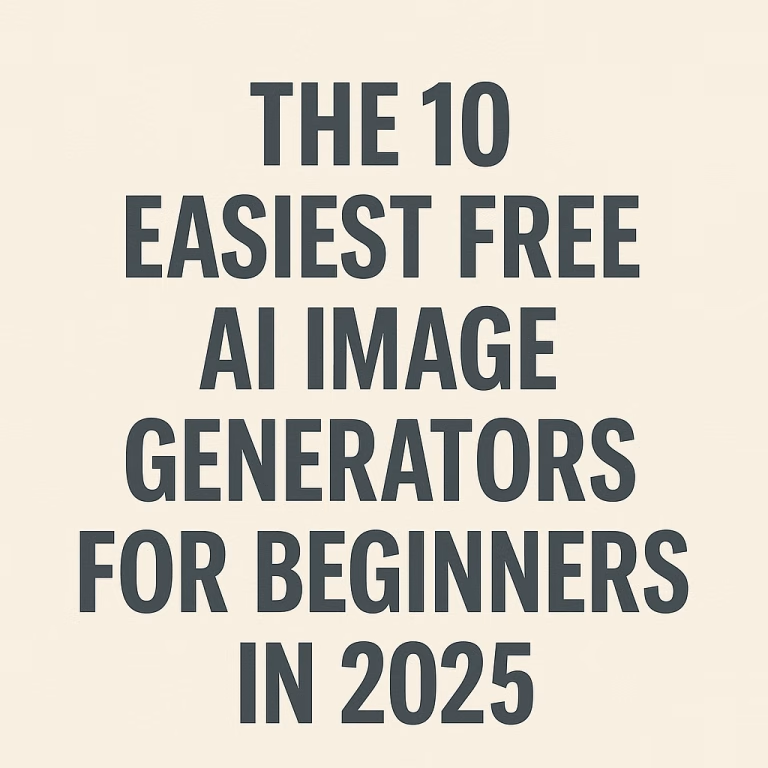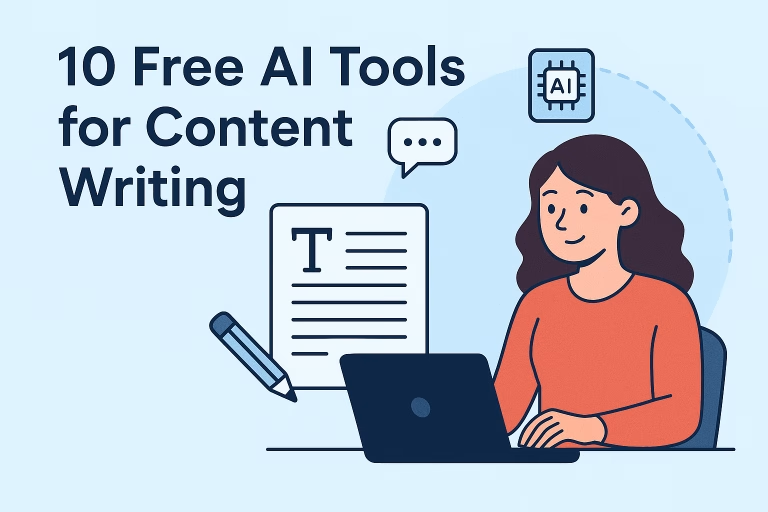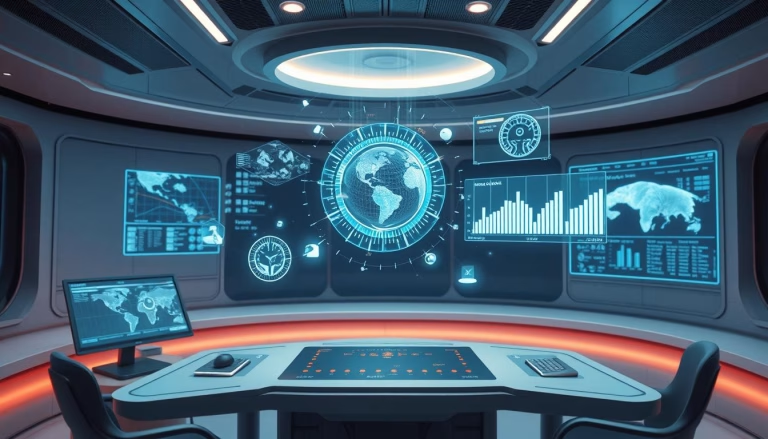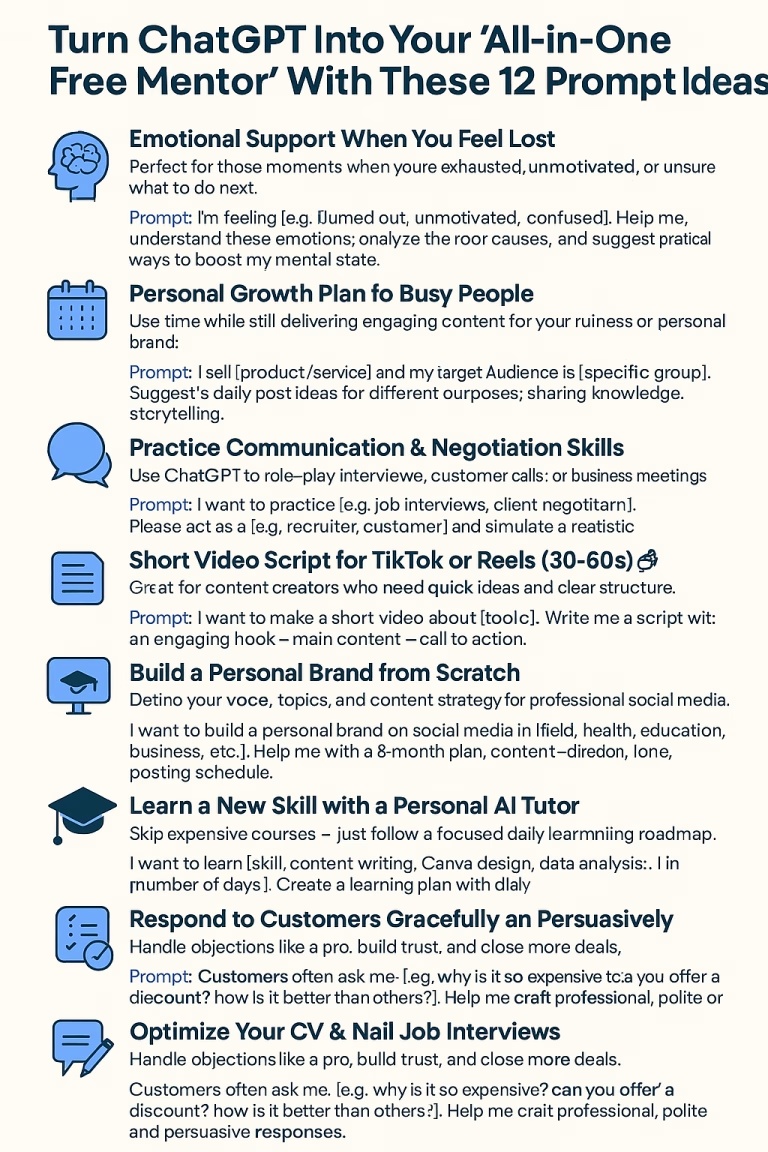The Future of AI in Digital Advertising 2025: Trends and Transformations
Explore the future of AI in digital advertising 2025, uncovering key trends like hyper-personalization, generative AI, and predictive analytics. Learn how AI will transform ad creatives, targeting, and campaign optimization for marketers.
Introduction: The AI-Driven Evolution of Digital Advertising
The digital advertising landscape is in a constant state of flux, but few forces have reshaped it as profoundly as artificial intelligence. As we look towards 2025, AI is set to move beyond mere optimization, becoming an indispensable strategic partner that redefines every facet of online advertising. From the creation of ad creatives to the precise targeting of audiences and the real-time optimization of campaigns, AI’s influence will be pervasive, driving unprecedented levels of efficiency, personalization, and effectiveness.
This comprehensive guide delves into the anticipated trends and transformations that will characterize the future of AI in digital advertising 2025. We’ll explore how hyper-personalization will become the norm, how generative AI will revolutionize creative production, and how predictive analytics will enable marketers to anticipate consumer needs with remarkable accuracy. Understanding these shifts is crucial for advertisers and businesses looking to stay competitive, maximize their return on investment, and forge deeper connections with their audiences in an increasingly intelligent digital ecosystem.
1. Key Trends Shaping Digital Advertising in 2025
The integration of AI into digital advertising is not just a gradual evolution; it’s a seismic shift. Several key trends will dominate in 2025, fundamentally altering how campaigns are conceived, executed, and measured.
1.1. Hyper-Personalization at Scale
One of the most significant impacts of AI in 2025 will be the widespread adoption of hyper-personalization at scale. Consumers today expect tailored experiences, and AI is the only technology capable of delivering this on an individual level across vast audiences.
AI algorithms will analyze colossal datasets – including browsing behavior, purchase history, demographic information, social media interactions, and even real-time contextual cues – to create incredibly granular customer segments. This goes far beyond basic demographic targeting; AI will predict individual preferences, anticipate needs, and even understand emotional states to deliver messages that feel uniquely crafted for each user. Dynamic content delivery will become standard, where ad creatives, landing page copy, and product recommendations adapt in real-time based on a user’s immediate interactions and historical data. This level of personalization will drive significantly higher engagement rates, click-through rates, and conversion rates, making generic advertising increasingly ineffective. Brands that fail to embrace AI-driven hyper-personalization risk being left behind as consumer expectations for relevant experiences continue to rise.
1.2. Generative AI for Creative Content & Design
Generative AI, particularly large language models (LLMs) and image/video generation tools, will revolutionize the creation of ad creatives and marketing content in 2025. This trend will empower marketers to produce high-quality, diverse, and personalized assets at unprecedented speed and scale.
Instead of manual design and copywriting, AI will co-create ideas, draft compelling ad copy, and generate visually stunning images and videos from simple text prompts. Tools will allow for rapid A/B testing of thousands of creative variations, with AI predicting which versions will perform best even before campaigns launch. This means dynamic ad creatives that adapt in real-time to different audience segments or even individual user preferences, ensuring maximum relevance. Furthermore, generative AI will extend to creating entire campaign assets, from social media posts and blog content to landing page layouts and interactive experiences. This will democratize high-quality creative production, enabling smaller businesses to compete with larger enterprises by producing sophisticated, personalized ad content without extensive design teams or budgets. The focus will shift from manual creation to prompt engineering and strategic oversight of AI-generated assets, allowing human creatives to focus on higher-level strategy and emotional resonance.
1.3. Predictive Analytics & Optimized Ad Targeting
The ability to predict future outcomes is a superpower for advertisers, and AI will make this more accurate and accessible than ever in 2025. Predictive analytics will move beyond simply identifying trends to anticipating consumer needs, purchasing intentions, and optimal engagement moments with remarkable precision.
AI algorithms will continuously analyze vast streams of data – from historical campaign performance and market fluctuations to individual user journeys and external economic indicators – to forecast future behaviors. This will enable marketers to make data-driven decisions that optimize ad spend, refine audience segmentation, and pinpoint the most receptive individuals for specific campaigns. Ad targeting will become hyper-precise, moving beyond broad demographics to target individuals based on their predicted likelihood to convert, their current stage in the buying journey, or their specific interests at any given moment. Furthermore, AI will predict the optimal channels and times for ad delivery, ensuring messages reach consumers when they are most receptive. This advanced predictive capability will lead to significantly improved ad performance, higher ROI, and a reduction in wasted advertising budget, fundamentally transforming how ad dollars are allocated and managed.
1.4. Automated Campaign Management & Optimization
The days of manual campaign adjustments are rapidly fading. In 2025, AI will drive sophisticated automation in campaign management and optimization, making real-time adjustments the norm rather than the exception.
AI-powered platforms will continuously monitor campaign performance metrics across various channels, identifying underperforming ads, inefficient bidding strategies, or untapped opportunities. These systems will then automatically adjust bids, reallocate budgets, pause ineffective creatives, or even launch new ad variations in real-time to maximize campaign goals. This level of automation ensures campaigns are always operating at peak efficiency, responding instantly to market changes and consumer behavior shifts. Programmatic advertising, already heavily reliant on AI, will become even more intelligent, with AI agents autonomously managing complex ad buying processes, optimizing placements, and ensuring brand safety. This frees up human marketers from tedious, repetitive tasks, allowing them to focus on strategic planning, creative development, and interpreting the deeper insights provided by AI, rather than constant manual tweaking.
1.5. Conversational AI & Enhanced Customer Experience
Conversational AI, primarily through advanced chatbots and virtual assistants, will play an increasingly critical role in digital advertising in 2025, transforming customer experience and lead generation. These AI-powered interfaces will provide personalized, instant interactions that guide consumers through their journey.
AI chatbots will become more sophisticated, capable of handling complex queries, offering personalized product recommendations, and even completing transactions directly within messaging platforms or on websites. They will analyze user sentiment and adapt their responses in real-time, providing empathetic and relevant support around the clock. This not only improves customer satisfaction by offering instant assistance but also serves as a powerful lead generation tool, qualifying prospects and collecting valuable data that can be fed back into personalized advertising campaigns. Furthermore, conversational AI will extend to voice search optimization, as more consumers use voice assistants to discover products and services. Advertisers will need to optimize their content for natural language queries, with AI helping to predict user intent and deliver highly relevant voice-based ad experiences.
1.6. Ethical AI, Data Privacy & Trust
As AI becomes more deeply integrated into digital advertising, the critical issues of ethical AI, data privacy, and consumer trust will take center stage in 2025. With increasing data collection and sophisticated personalization, consumers are becoming more aware and concerned about how their personal information is used.
Advertisers will face heightened scrutiny and stricter regulations regarding data collection, usage, and transparency. AI systems will need to be designed with privacy-by-design principles, ensuring data protection is baked into every stage of the advertising process. The challenge will be to leverage AI for hyper-personalization while respecting user privacy and avoiding practices that feel intrusive or manipulative. Brands will need to establish clear ethical guidelines for AI usage, ensuring algorithms are fair, unbiased, and transparent in their decision-making. Explainable AI (XAI) will gain importance, allowing marketers and consumers to understand why a particular ad was shown or a recommendation was made. Building and maintaining consumer trust will be paramount, with brands that prioritize ethical AI and data privacy gaining a significant competitive advantage. This trend will necessitate a shift towards first-party data strategies and a greater emphasis on consent-driven personalization.
2. Impact on Roles and Skills in Digital Advertising
The widespread adoption of AI in digital advertising will inevitably transform job roles and demand a new set of skills from marketers in 2025. Routine, repetitive tasks will increasingly be automated, allowing human talent to focus on higher-value activities.
- Shift from Execution to Strategy & Oversight: Marketers will spend less time on manual tasks like ad setup, bidding adjustments, or basic content drafting. Instead, their roles will evolve towards strategic planning, interpreting AI-driven insights, and overseeing AI systems. They will become “orchestrators” of AI tools, guiding the technology rather than performing every task themselves.
- Rise of “Prompt Engineers” & AI Trainers: The ability to communicate effectively with AI models (e.g., ChatGPT, generative AI tools) through precise and creative prompts will become a critical skill. Marketers will need to understand how to “train” AI with brand guidelines, tone, and specific objectives to ensure optimal output.
- Data Literacy & Analytics: A deeper understanding of data analytics will be essential. Marketers will need to interpret complex AI-generated reports, identify actionable insights, and understand the implications of AI’s predictions for their campaigns.
- Creative & Storytelling: While generative AI can produce content, the human element of compelling storytelling, emotional resonance, and unique brand voice will remain paramount. Marketers will focus on refining AI-generated creatives and infusing them with authentic human creativity.
- Ethical AI & Compliance Expertise: Understanding data privacy regulations (like GDPR, CCPA) and ethical AI principles will be crucial. Marketers will need to ensure their AI-driven campaigns are compliant and maintain consumer trust.
- Adaptability & Continuous Learning: The pace of AI innovation is rapid. Marketers will need to be agile, continuously learning new tools and adapting their strategies to leverage the latest advancements.
3. Challenges and Considerations for 2025
Despite its immense potential, the future of AI in digital advertising 2025 is not without its challenges. Advertisers must navigate these complexities to fully realize AI’s benefits.
- Data Quality & Bias: AI models are only as good as the data they’re trained on. Poor quality or biased data can lead to ineffective or even discriminatory ad targeting and content generation, potentially harming brand reputation. Ensuring clean, representative data will be a continuous challenge.
- Privacy Concerns & Regulations: The increasing sophistication of AI in collecting and analyzing personal data will intensify privacy concerns. Evolving regulations will require constant vigilance and adaptation from advertisers to ensure compliance and maintain consumer trust.
- Transparency & Explainability: The “black box” nature of some AI algorithms can make it difficult to understand why certain decisions are made (e.g., why an ad was shown to a specific user). A lack of transparency can erode trust and make troubleshooting difficult. The demand for Explainable AI (XAI) will grow.
- Over-reliance & Loss of Human Touch: An over-reliance on AI without human oversight can lead to generic content, missed nuances in customer interactions, or a loss of authentic brand voice. Maintaining a balance between AI efficiency and human creativity/empathy is crucial.
- Technological Integration & Complexity: Integrating various AI tools into existing marketing technology stacks can be complex and require significant investment in infrastructure and expertise, especially for smaller businesses.
- Talent Gap: The demand for marketers with strong AI literacy and data analytics skills will outpace supply, creating a talent gap that businesses will need to address through upskilling and strategic hiring.
- AI-Generated Content Detection: As generative AI becomes more prevalent, the ability for platforms (and consumers) to detect AI-generated content will also advance. Marketers will need to ensure their AI-assisted content is unique, valuable, and passes human scrutiny to avoid penalties or loss of audience engagement.
Conclusion: Navigating the Intelligent Advertising Frontier
The future of AI in digital advertising 2025 promises a landscape of unprecedented personalization, creative automation, and strategic optimization. AI will empower marketers to understand their audiences with greater depth, craft highly relevant messages at scale, and manage campaigns with real-time precision. This transformation will lead to more efficient ad spend, higher conversion rates, and stronger, more meaningful connections with consumers.
However, success in this AI-driven era hinges on a proactive and thoughtful approach. Businesses must prioritize ethical AI practices, ensure data privacy, and continuously adapt to evolving technologies and consumer expectations. The role of the marketer will evolve, shifting from manual execution to strategic guidance, creative oversight, and data interpretation. By embracing these trends, addressing the challenges head-on, and fostering a collaborative relationship between human intelligence and artificial intelligence, advertisers can not only navigate but also thrive in the intelligent advertising frontier of 2025 and beyond.
